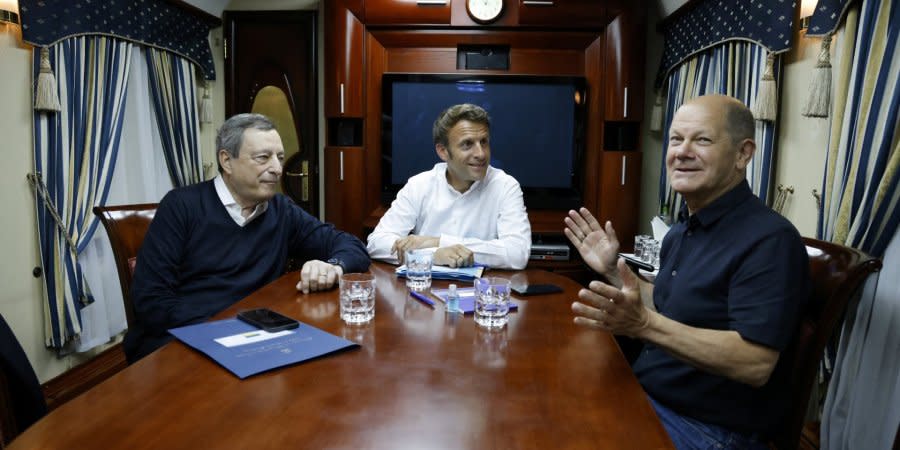Scholz, Macron, and Draghi arrive in Ukraine

- Oops!Something went wrong.Please try again later.
“This was my third night on a train in a row, but I wasn’t the only one who spent last night on a train,” said Kamyshin, posting a photo of the three European leaders riding a Ukrainian train.
According to Italian news outlet Rai News, Macron, Scholz, and Draghi are headed to Ukraine’s capital, but it’s unclear when they are expected to arrive.
Read also: Macron calls for ‘not humiliating’ Russia, speaks of ‘isolated’ Putin
This is the first visit by any of the three leaders to Ukraine since the start of the full-scale Russian invasion.
Scholz, Macron, and Draghi have publicly advocated for a swift diplomatic resolution to the conflict while providing security assistance to Ukraine in the meantime. The French and German leaders had several phone calls with Russian dictator Vladimir Putin, hoping to persuade him to relent and cooperate in resolving some of the more pressing humanitarian issues in Ukraine.
Read also: The growing circle of Putin’s friends in the West
According to Ukrainian President Volodymyr Zelensky, Macron suggested Ukraine concede some territory to Russia, in order to allow Putin to “save face.”
German media reported that Scholz is actively stalling deliveries of pledged heavy weapons to Ukraine, which are now expected as late as this fall.
Italy has previously presented its four-point peace plan:
Ceasefire and a demilitarized zone along the front lines, under UN supervision;
Talks about Ukraine’s future status, including EU membership, but no NATO accession;
Bilateral Ukraine-Russia treaty on Crimea and Donbas. The proposal suggests these “contested territories” be given full autonomy, under nominal Ukrainian sovereignty;
A multilateral European security agreement, which would regulate potential conflicts on the continent and build trust through arms control.
Read also: 'Compromise' peace deals some countries suggest Ukraine should take
The document suggests that a Russian troop withdrawal would happen only after these proposals are implemented.

